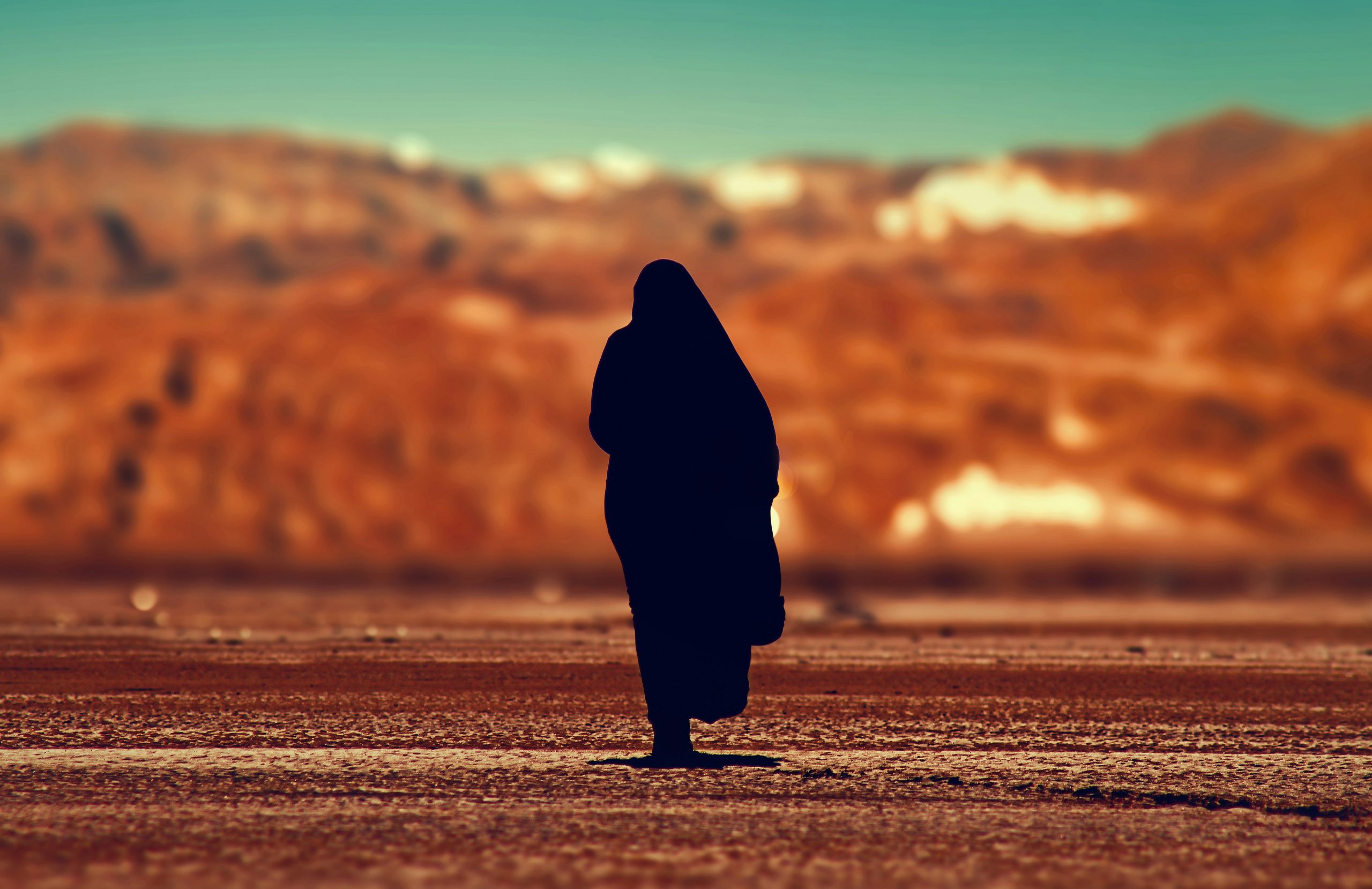This is the first in a brand new short series called “Righteous Romances”, exploring love stories from the Sahaba (R.A). We hope you find it beneficial!
Her name was Atika, the daughter of Zayd ibn ‘Amr ibn Nufayl, one of the most honored men of Makkah before Islam.
She was known for her immense piety, her masterful poetry, and for her incredible beauty.
His name was ‘Abdullah, the son of Abu Bakr as-Siddiq (R.A), the greatest companion of the Prophet ﷺ.
He was known to be dashing, brave, a devout worshipper, and a courageous warrior in the path of Allah.
The two of them married, and their love became the talk of the city. The kind of romance that you’d think only existed in fiction:
They were young, passionate, and they seemed perfect for each other…
That was until one fateful day, when Abu Bakr (R.A) ordered his son to divorce his wife.
When Love Becomes Blinding
You might think that these two were perfect for one another, as did many, and Abu Bakr did not see any fault in Atika.
He knew of her immaculate character and virtue, but it was what he saw in his son that troubled him.
He saw that ‘Abdullah (R.A) was so enamored with his wife, that their love was affecting his relationship with Allah.
His attendance at the masjid was weaker, as was his presence on the battlefield.
Now, we today might not find these so alarming, but we are not Abu Bakr (R.A). There is a reason why he was above and beyond us, because he held himself and his family to a higher standard in their Deen.
So, ‘Abdullah followed his father’s advice, and despite the emotional weight of it all, he divorced Atika.
This decision, however, took a major toll on both of them.
It’s said ‘Abdullah could be seen reciting melancholic verses lamenting their lost love,
Having seen the grief it had caused his son, Abu Bakr (R.A) gave his blessing once again, and the two remarried, paying heed to their relationship with Allah above all.
‘Abdullah returned to the battlefield again, taking part in the battle of Ta’if, where he would thereafter reach martyrdom, returning to his Lord.
Atika was struck with grief, dedicating poetry to her departed husband:
“May my eyes never stop weeping for you,
May my skin never be perfumed again, except by dust.”
Her story does not end there, however.
Love would continue to test Atika, but the mark of her excellence is how she continued to endure.
Daring to Love Again
One might think that being tested with divorce, remarriage, and being widowed, Atika might have been put off the prospect of marriage altogether, and she was ready to resign herself to a life alone after her ‘ida (mourning period), but the sincere advice from the other companions encouraged her to move forward.
‘Umar ibn al-Khattab, Atika’s cousin, advised her, “Do not make haram for yourself what Allah has made halal.”
This gave Atika the resolve to love again, and she would eventually marry Zayd ibn al Khattab, the brother of ‘Umar.
Not much is known about the details of their marriage, for Zayd too would reach martyrdom soon after at the battle of Yamamah.
Now widowed twice, Atika’s test of love was bearing down on her, yet she remained patient, and for that, Allah blessed her with a period of peace and clemency.
The Wife of the Caliph
Yes, soon after Atika would marry none other than ‘Umar ibn al-Khattab, the second Caliph, the man who the devil himself fled from, and about whom the Prophet ﷺ said:
“Were there to be a prophet after me, it would have been ‘Umar”
[Jami’ al Tirmidhi]
Their wedding was an occasion of great joy, visited by many of the senior companions including A’isha (R.A), the mother of the believers, and Atika’s sister in-law once upon a time.
A’isha could not help but tease the blushing bride, reminding her of the lines of poetry she lamented ‘Abdullah with, changing the words to:
“May my eyes find peace after you,
May my skin be perfumed once more.”
Her marriage to ‘Umar brought years of much-needed happiness after the pain she endured, and the two found kindred spirits in one another; both deeply devout and known for their character and austerity.
But as time passed, their marriage too would end in tragedy, as ‘Umar would eventually be martyred whilst praying in the masjid.
The Widow of Martyrs
By this point, a sentiment grew among the people of Madinah:
“If a man wishes to be martyred, let him marry Atika bint Zayd.”
This was not to tease or belittle her, or to spread false superstition, but it was a mark of honor to be the widow of a martyr, and it was for that reason that the most respected companions sought her hand in marriage.
This time it was Zubayr ibn Awwam (R.A), another of the famous 10 promised paradise, and whom the Prophet ﷺ referred to as his disciple.
But like ‘Umar, and Zayd, and ‘Abdullah before, Zubayr’s destiny was to return to his Lord a martyr at the battle of al Jammal, one of the major tragedies of that event.
It is said that Atika would marry once more, to the beloved grandson of the Prophet ﷺ: Al Husayn. This time, however, she would not live to see her husband’s martyrdom, as Atika would pass away years before the tragedy of Karbala.
Lessons From The Life of Atika
There are many powerful gems to take away from the saga of Atika (R.A). Both in her personal struggles but also in the culture around her.
When we look to the Sahaba, we find a community that did not stigmatise remarriage, and in fact honored their widows and divorcees.
The fact that she had been married before did not deter the greatest of the companions from pursuing her hand, because they were a people who valued piety above all else.
That alone should inspire us collectively today, especially in the face of the marital crises we see in many communities.
But there is something even greater we find in this story, and that is the character of Atika herself.
One might read about her life through a tragic lens, but the story of Atika is one of resilience and hope.
It takes tremendous courage to love after facing intense grief and loss, and shows the tawakkul she had in Allah. Never do we find her asking, “Why me?”
Grief never led to doubt in Allah’s plan for her, and despite the pain and trauma that comes with such harrowing loss, she continued to seek love, trusting in Allah all the while.
For those who have been troubled and tested in the pursuit of love, whether it be rejection, divorce, or even loss, let the example of Atika bint Zayd (R.A) serve as a source of inspiration.



Recent Comments